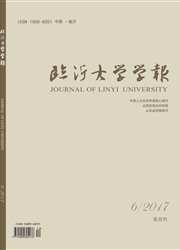

 中文摘要:
中文摘要:
王国维、陈登元、牟宗三、路德斌等曾以“情恶”(情欲本恶,或结果可能恶,或结果常恶等)来证明荀子“性恶”论,且此类翻新解说至今层出不穷。陈林博士则别出心裁地将荀子的“性”概念剔除掉“情—欲”含义而只限定为“知—能”含义并谓统摄知能的“心”本无礼义,如此构建起“心无礼义=心恶=性恶”之说。“天生不具备礼义”不过是心朴性朴,并不等于心恶性恶,且荀子的“性”包括情欲且所指情欲尤多,荀子的“能”不排除生理官能、情欲。按荀书“性—伪”“善—恶”的明确定义及“性者本始材朴也—人之性恶明矣”的明确命题,“性朴”与“性恶”在今本《荀子》全书是根本无法统一的,任何好心辩解或调和实皆与荀书自身定义及严格命题明确矛盾而流于无效与多余。荀子实非持“性恶”论,荀子《性恶》篇并非是要以性恶驳性善并立性恶论,而是以性无善驳性善并立性朴论、习伪论。
 英文摘要:
英文摘要:
Wang Guowei,Chen Dengyuan,Mu Zongsan,and Lu Debin prove Xunzi's evil human nature with evil feeling means evil lust or evil result.This kind interpretation occurs a lot.Dr.Chen Lin defines Xunzi' s sex as"knowing--competence" and regards "heart"as no righteousness. "No one is born with righteousness'is just good human nature,but not evil human nature. Xunzi' s sex includes lust and even means more.According to Xunzi's definition of"sex-false"and"goodness-evil","good human nature"and "evil human nature"cannot be united at all.Any kind excuse and reconciliation are all contradictory to Xunzi' s own definition.
 同期刊论文项目
同期刊论文项目
 同项目期刊论文
同项目期刊论文
 期刊信息
期刊信息
